What happened to Leo Tolstoy’s family after the 1917 Revolution
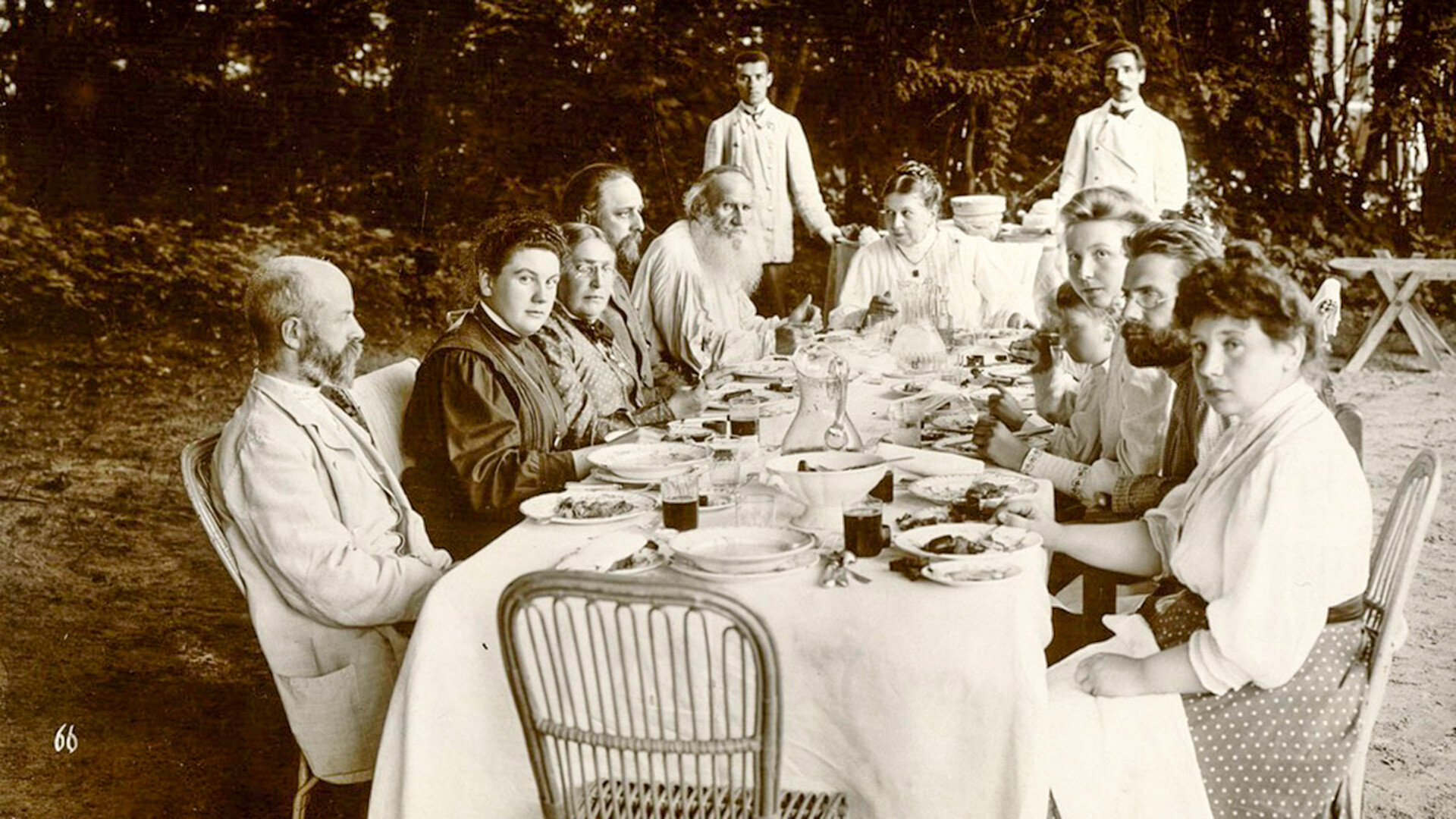
In the Summer of 2024, the book ‘Two Tatyanas. Daughter & Granddaughter of Leo Tolstoy’ (Boslen Publishing House) saw the light of day in Russian for the first time. It was written by Tolstoy's great-granddaughter Marta Albertini, the daughter and granddaughter of the very Tatyanas mentioned in the title.
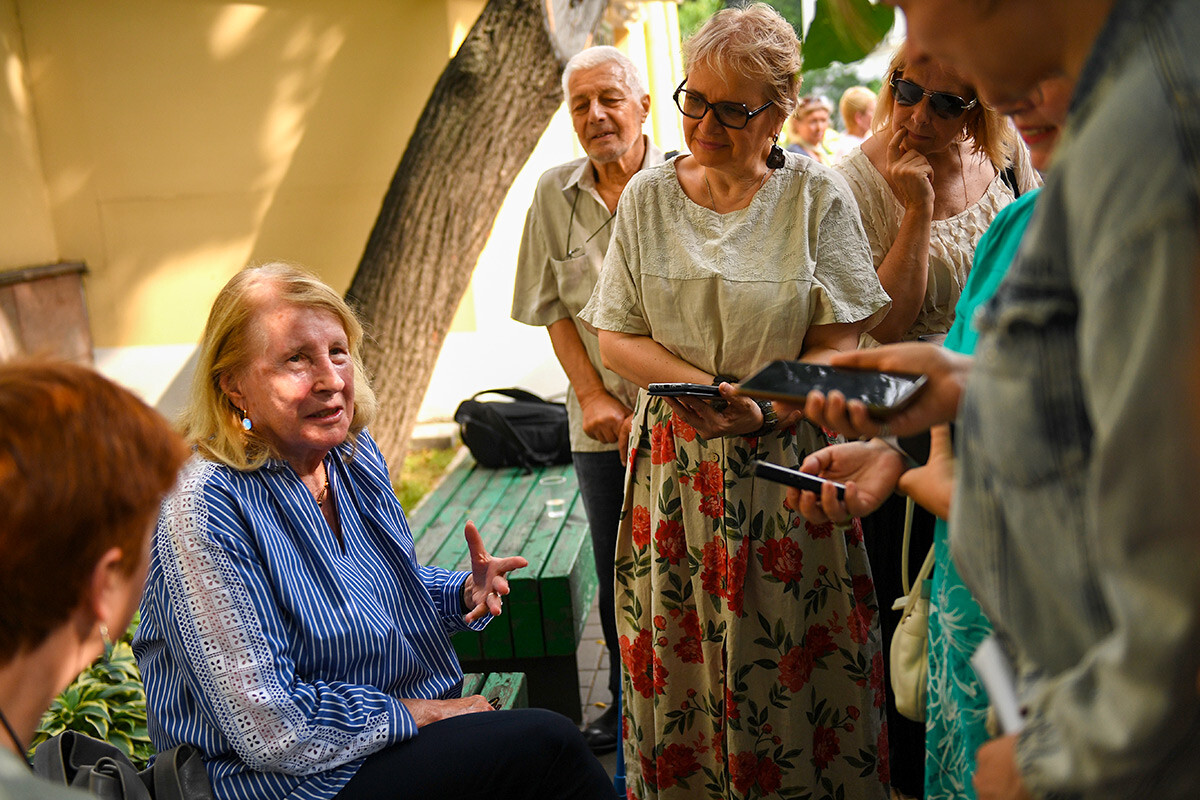 Marta Albertini (second from the left, sitting) on her book presentation in Moscow, 2024.
Marta Albertini (second from the left, sitting) on her book presentation in Moscow, 2024.
She was born in 1937 in Rome, when her mother and grandmother were in emigration. For quite a long time, she didn't even know that her great-grandfather was a famous writer and did not learn any Russian. But, her great love for the two Tatyanas prompted her to sort through the family archive, decipher correspondence and diaries and learn about how her ancestors lived in Russia and why they were forced to leave.
The news of the February 1917 coup caught Tolstoy's wife Sophia Andreyevna in Yasnaya Polyana by surprise. She was outraged about the riots in Petrograd (now St. Petersburg). Then, Tolstoy's daughter Tatyana lived with her. Having recently been widowed, she came to the family estate with her teenage daughter, also named Tatyana (or Tanya for short). Everyone was glad to be in a country far away from the events.
“No one feels sorry for the old government,” Marta Albertini quotes a letter from her grandmother to his older brother Sergei, dated March 10, 1917.
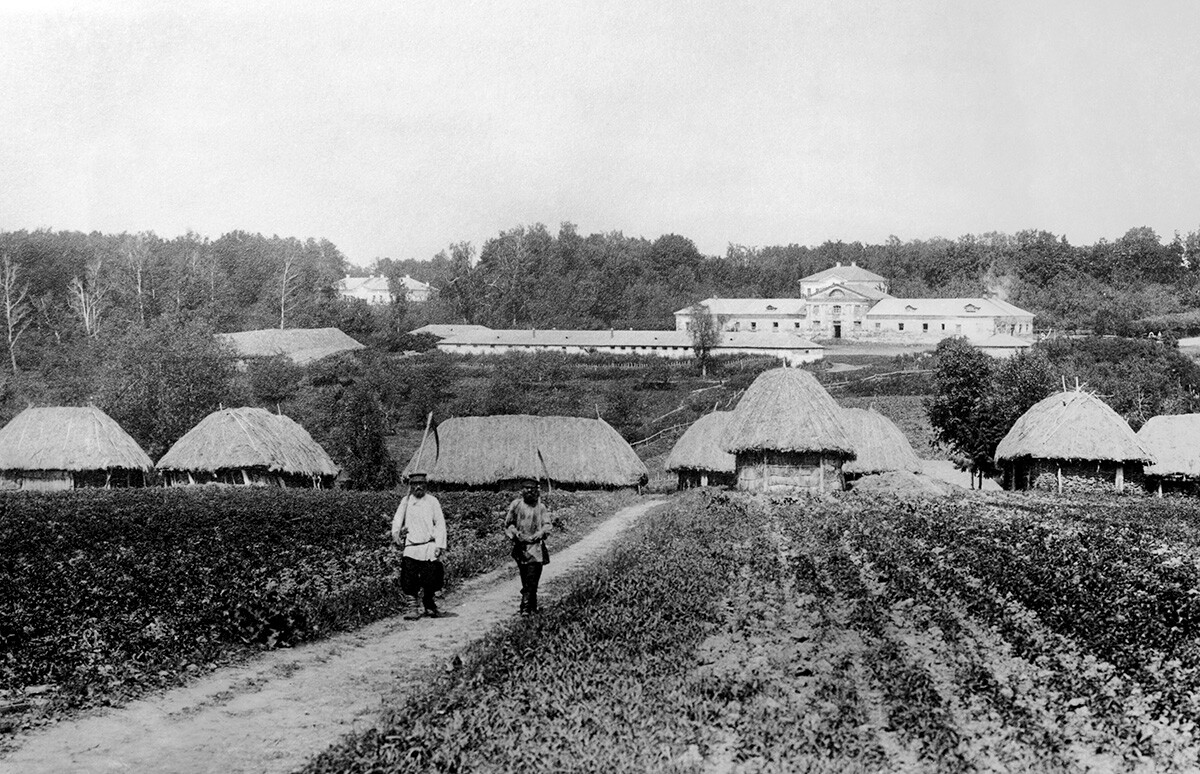 Leo Tolstoy's estate Yasnaya Polyana in 1908
Leo Tolstoy's estate Yasnaya Polyana in 1908
“Dissatisfaction with the government has saturated the whole of Russia to such an extent that no one can tolerate it any longer. One can sincerely thank the old government for the fact that it was so bad that, because of it, there is no struggle and, therefore, the revolution passes with unparalleled peacefulness,” Tatyana wrote to Sergei Tolstoy.
In addition, the whole family was happy that “it would now be possible to print all the father's works without fear of censorship,” because before that his later works were persecuted and banned.
The power of the proletariat & hunger
However, like the writer himself, Tatyana understood that power is power. And, even though it had changed, there would still be censorship and arrests.
Over time, the situation became more tense: robberies happened every now and then in the neighboring estates. Peasants were burning down noble houses and there were rumors that they wanted to get close to Tolstoy's. Tatyana wrote a letter to Alexander Kerensky, chairman of the Provisional Government, asking him to protect the estate. And he sent soldiers, but they soon scattered.
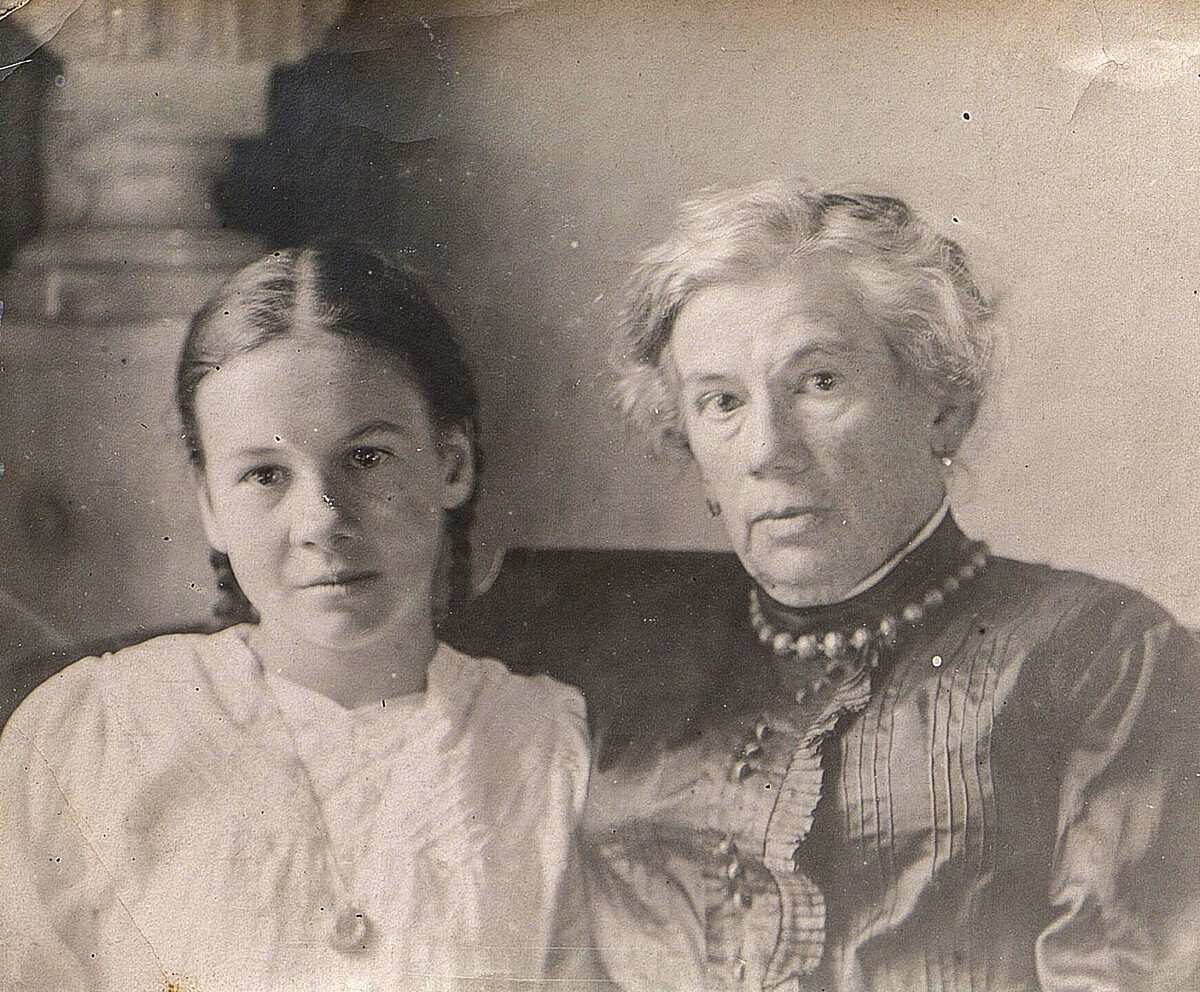 Tolstoy's daughter Tatyana (right) and her daughter Tatyana
Tolstoy's daughter Tatyana (right) and her daughter Tatyana
“Despite the general confusion and turmoil, Tatyana, along with her mother, sister Alexandra and brother Sergei, took up the organization of the Leo Tolstoy Museum in Yasnaya Polyana,” Albertini writes. Perhaps, it was the fact that they succeeded in creating a museum that saved the estate from the fate of neighboring ones.
After the Bolshevik’s October 1917 coup and with the outbreak of the Civil War, Tolstoy's family, which had lived not poorly before the revolution, began to starve. They had only one cow and ate practically everything Tatyana grew in the vegetable garden. Tolstoy's old friends, meanwhile, helped to get pasta, rice and beans. The family also had to sell off property in order to survive.
According to the memories of Tolstoy's daughter Alexandra, their servant who served the table, covered with a snow-white tablecloth was still dressed in white, albeit patched, gloves... But he served a plate that only had boiled fodder beets on it.
“I never thought the Bolshevik destruction would last so long. And it still continues, as if it is getting stronger,” wrote Tatyana in her diary in early 1919.
She sent a depressing letter to a friend, where she confessed that she wanted to leave Russia. “We did not suspect that irreconcilable class hatred, which has always lived in a hidden form in people of a different class, upbringing and education than us.”
But, still she noted that good relations had been preserved with the majority of Yasnaya Polyana’s peasants. After all, for many years, she herself taught their children to read and write, healed them and collected funds for charity.
The Civil War & emigration
The family observed the Civil War with bated breath. Tolstoy's granddaughter, teenager Tanya, wrote in her diary in September 1919: “I am on the side of Denikin, then the Bolsheviks. Every minute, I am disappointed in both sides. There are a lot of cruelties both here and there. I very much approve of the principle of Bolshevism, but they carry it out brutally.”
Meanwhile, the health of Sophia Andreyevna, the writer's wife, deteriorated from the upheaval. “She was always afraid that there was not enough food and that we would all starve to death. It tormented her terribly,” Tanya wrote in her diary. In November 1919, Sophia Andreyevna died.
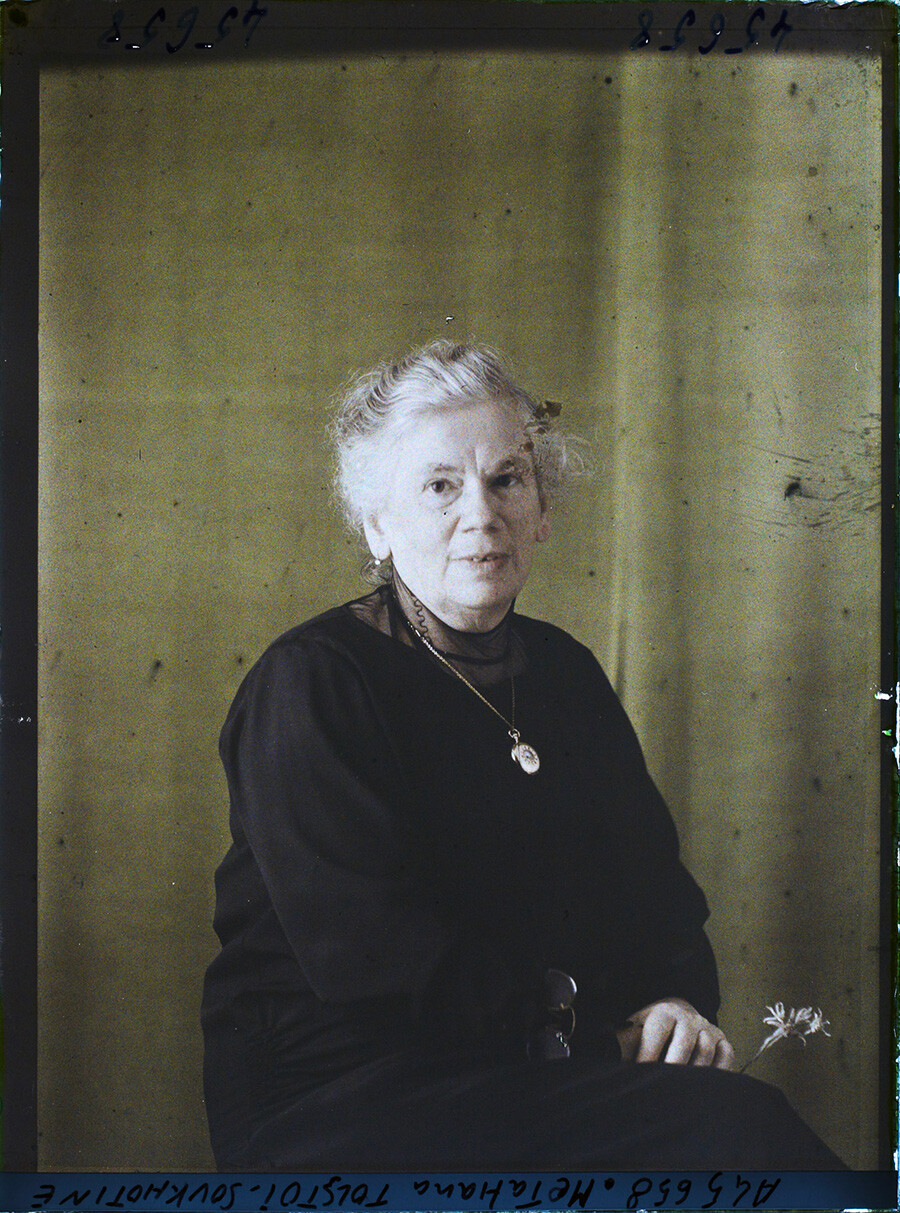 Tolstoy's daughter Tatyana in Italy
Tolstoy's daughter Tatyana in Italy
One by one, almost all of Tolstoy's children left Russia, unable to find their place in the new circumstances and fearing persecution (Read more about their fates here). Tatyana worked as a curator at the Yasnaya Polyana Museum until 1923 and then as director of the Tolstoy Museum in Moscow. In 1925, she left for Paris and then Italy and spent her last years in Rome, living with her daughter Tanya, who married an Italian lawyer named Leonardo Giuseppe Albertini.


